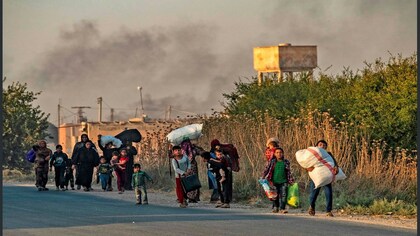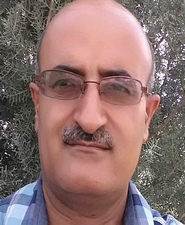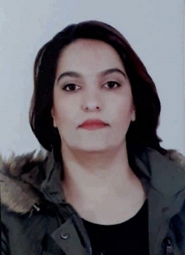Iran Nuclear Standoff Obscures Broader Proliferation Challenges
16:37 - 6 February 2012

America’s current standoff with Iran over the direction of Tehran’s nuclear program is only one symptom of a larger problem. Concerns over climate change and the rising costs of ever-scarcer hydrocarbons are leading more countries to turn to atomic energy as a long-term source of cheap and emissions-free energy. While some of these nuclear newcomers will trust that international markets will be able to guarantee access to nuclear fuel, others will want to control the entire fuel cycle on their own territory.
That means we may soon be faced with a situation where many countries will aspire to the technological capabilities currently enjoyed by Japan -- and herein lies the problem. Though Japan currently is not a nuclear-weapons state, it has for many years had a latent “breakout” capacity whereby a Japanese government, if it so desired, could quickly and easily fabricate nuclear weapons with little or no warning. Whether Iran is actively pursuing a weapon or not is open to debate; but what appears incontrovertible is that Tehran wants to attain a level of technological expertise that would enable it to exercise just such a “Japanese option” in the future if it so desired.
This helps to explain why so many countries of the rising South and East have been reluctant to join the United States and Europe in applying punitive sanctions against the Iranian government: They are reluctant to take steps against Iran that would subsequently sign away their own potential rights under the current nonproliferation system to acquire the full panoply of nuclear technology.
The problem is exacerbated by the fact that the U.S. approach to Iran’s nuclear program is not providing much long-term guidance for coping with the spread of nuclear technology. Will the strategy moving forward be to use whatever means are necessary to prevent any and all countries hostile to U.S. interests from acquiring nuclear technology? Given the strong incentives that French, Russian and Korean firms have in finding new customers for atomic energy, the notion that the spread of nuclear plants and equipment can be embargoed is unrealistic.
Some have argued that the spread of Western-style liberal democracy is the answer. After all, the international community trusts Japan not to abuse its nuclear status, in part because of its system of government. One of the options that has remained on the table in dealing with Iran has been to encourage domestic regime change: Some U.S. pundits and presidential candidates argue that a revolution in Tehran -- presumably by the opposition Green movement -- would bring to power a government willing to terminate Iran’s nuclear ambitions, though this does not correspond to the broad consensus of support for the uranium-enrichment effort expressed across the Iranian political spectrum. Failing regime change, some have argued that an Iran that embraced liberal democracy -- or else one that returned to being a reliably pro-American regime, as under the shah -- could continue with its program to master the enrichment cycle.
Yet, as Paul Pillar recently warned in commenting about events in Hungary and Egypt, “Democratization and liberalization are not necessarily one-way processes.” And in the past 20 years, we have seen the outcome of regime change in two nuclear weapons states: The Soviet Union collapsed, only to be replaced by a “managed democracy” characterized by soft authoritarianism in post-Soviet Russia; and Pakistan has gone through a series of parliamentary and military regimes. Countries that are trusted today may find themselves governed by less-reliable rulers tomorrow, with worrisome implications for any existing nuclear infrastructure. Former National Security Advisor Brent Scrowcroft warned several years ago, “Any approach to stemming nuclear proliferation that singles out specific countries . . . is not likely to succeed. . . . And an approach that relies on determining the character of regimes to assess worthiness to use nuclear energy is full of loopholes.”
Even if the Iran crisis is resolved peacefully and soon, the larger issue remains: In time, more countries will acquire the building blocks of a nuclear weapons program. Combine this with a growing number of countries desiring to have their own space-faring capacities for launching satellites -- South Africa, for example -- and we face the prospect of a world that by 2030 has a number of states with the breakout capacity for quickly fabricating nuclear weapons and the systems needed to deliver them.
Sustaining a long-term strategy to address this challenge will be critical. In 2009, U.S. President Barack Obama announced plans to turn the Proliferation Security Initiative into a durable international institution. With the “sherpas” meeting to prepare for the second Nuclear Security Summit in March having just concluded, it is still not clear how much further along we are to expanding and extending the PSI. Indeed, whether the entire nuclear security summit process will continue or wither away, particularly if Obama is not re-elected, remains unclear.
Part of a robust new international effort must be to get the countries and companies that supply nuclear technology and fuel to work together to promote an open process, particularly if we want to discourage rising powers from feeling they must master the fuel-enrichment cycle to secure their energy independence.
But the United States will also need to reconsider its defensive measures. Proposals to cut defense research budgets to save money in times of fiscal austerity need to be measured against long-term security needs. Recognizing that there are still many flaws with current missile defense systems set to be deployed -- even as deployment of those systems, particularly in Europe, have complicated an already tense U.S.-Russia relationship -- it may make more sense to focus on renewed laboratory work for the foreseeable future. Improving our nuclear forensics capabilities is also required, especially if we are to deter a nuclear Iran, or any other country with asymmetric capabilities, due to their incentive to avoid accountability -- and thereby a U.S. riposte -- for any eventual strike. David Sanger reported last year that “when the Obama administration ran some tabletop exercises soon after coming to office, it was shocked to discover that the science of nuclear forensics was nowhere near as good in practice as it was on television dramas.”
Programs for scanning cargo containers must be upgraded, and intelligence assets must be redirected and expanded to track the movement of nuclear materials, so as to cut down on the risks of nuclear materials being stolen and defend against the nonconventional delivery of an atomic device. The theft of radioactive material from a nuclear plant under construction in Egypt earlier this week, while it does not seem to pose a major security threat in light of what was taken, nevertheless highlights the need for enhanced security as nuclear power plants continue to spread around the world.
The particular challenge represented by Iran’s nuclear program is taking up the oxygen in the policy process right now. But nuclear security must remain at the top of the national security agenda, because settling the Iran question will not take the issue of nuclear proliferation off the table.
Nikolas K. Gvosdev is the former editor of the National Interest, and a frequent foreign policy commentator in both the print and broadcast media. He is currently on the faculty of the U.S. Naval War College. The views expressed are his own and do not reflect those of the Navy or the U.S. government. His weekly WPR column, The Realist Prism, appears every Friday.
BY NIKOLAS GVOSDEV
Source - WPR
That means we may soon be faced with a situation where many countries will aspire to the technological capabilities currently enjoyed by Japan -- and herein lies the problem. Though Japan currently is not a nuclear-weapons state, it has for many years had a latent “breakout” capacity whereby a Japanese government, if it so desired, could quickly and easily fabricate nuclear weapons with little or no warning. Whether Iran is actively pursuing a weapon or not is open to debate; but what appears incontrovertible is that Tehran wants to attain a level of technological expertise that would enable it to exercise just such a “Japanese option” in the future if it so desired.
This helps to explain why so many countries of the rising South and East have been reluctant to join the United States and Europe in applying punitive sanctions against the Iranian government: They are reluctant to take steps against Iran that would subsequently sign away their own potential rights under the current nonproliferation system to acquire the full panoply of nuclear technology.
The problem is exacerbated by the fact that the U.S. approach to Iran’s nuclear program is not providing much long-term guidance for coping with the spread of nuclear technology. Will the strategy moving forward be to use whatever means are necessary to prevent any and all countries hostile to U.S. interests from acquiring nuclear technology? Given the strong incentives that French, Russian and Korean firms have in finding new customers for atomic energy, the notion that the spread of nuclear plants and equipment can be embargoed is unrealistic.
Some have argued that the spread of Western-style liberal democracy is the answer. After all, the international community trusts Japan not to abuse its nuclear status, in part because of its system of government. One of the options that has remained on the table in dealing with Iran has been to encourage domestic regime change: Some U.S. pundits and presidential candidates argue that a revolution in Tehran -- presumably by the opposition Green movement -- would bring to power a government willing to terminate Iran’s nuclear ambitions, though this does not correspond to the broad consensus of support for the uranium-enrichment effort expressed across the Iranian political spectrum. Failing regime change, some have argued that an Iran that embraced liberal democracy -- or else one that returned to being a reliably pro-American regime, as under the shah -- could continue with its program to master the enrichment cycle.
Yet, as Paul Pillar recently warned in commenting about events in Hungary and Egypt, “Democratization and liberalization are not necessarily one-way processes.” And in the past 20 years, we have seen the outcome of regime change in two nuclear weapons states: The Soviet Union collapsed, only to be replaced by a “managed democracy” characterized by soft authoritarianism in post-Soviet Russia; and Pakistan has gone through a series of parliamentary and military regimes. Countries that are trusted today may find themselves governed by less-reliable rulers tomorrow, with worrisome implications for any existing nuclear infrastructure. Former National Security Advisor Brent Scrowcroft warned several years ago, “Any approach to stemming nuclear proliferation that singles out specific countries . . . is not likely to succeed. . . . And an approach that relies on determining the character of regimes to assess worthiness to use nuclear energy is full of loopholes.”
Even if the Iran crisis is resolved peacefully and soon, the larger issue remains: In time, more countries will acquire the building blocks of a nuclear weapons program. Combine this with a growing number of countries desiring to have their own space-faring capacities for launching satellites -- South Africa, for example -- and we face the prospect of a world that by 2030 has a number of states with the breakout capacity for quickly fabricating nuclear weapons and the systems needed to deliver them.
Sustaining a long-term strategy to address this challenge will be critical. In 2009, U.S. President Barack Obama announced plans to turn the Proliferation Security Initiative into a durable international institution. With the “sherpas” meeting to prepare for the second Nuclear Security Summit in March having just concluded, it is still not clear how much further along we are to expanding and extending the PSI. Indeed, whether the entire nuclear security summit process will continue or wither away, particularly if Obama is not re-elected, remains unclear.
Part of a robust new international effort must be to get the countries and companies that supply nuclear technology and fuel to work together to promote an open process, particularly if we want to discourage rising powers from feeling they must master the fuel-enrichment cycle to secure their energy independence.
But the United States will also need to reconsider its defensive measures. Proposals to cut defense research budgets to save money in times of fiscal austerity need to be measured against long-term security needs. Recognizing that there are still many flaws with current missile defense systems set to be deployed -- even as deployment of those systems, particularly in Europe, have complicated an already tense U.S.-Russia relationship -- it may make more sense to focus on renewed laboratory work for the foreseeable future. Improving our nuclear forensics capabilities is also required, especially if we are to deter a nuclear Iran, or any other country with asymmetric capabilities, due to their incentive to avoid accountability -- and thereby a U.S. riposte -- for any eventual strike. David Sanger reported last year that “when the Obama administration ran some tabletop exercises soon after coming to office, it was shocked to discover that the science of nuclear forensics was nowhere near as good in practice as it was on television dramas.”
Programs for scanning cargo containers must be upgraded, and intelligence assets must be redirected and expanded to track the movement of nuclear materials, so as to cut down on the risks of nuclear materials being stolen and defend against the nonconventional delivery of an atomic device. The theft of radioactive material from a nuclear plant under construction in Egypt earlier this week, while it does not seem to pose a major security threat in light of what was taken, nevertheless highlights the need for enhanced security as nuclear power plants continue to spread around the world.
The particular challenge represented by Iran’s nuclear program is taking up the oxygen in the policy process right now. But nuclear security must remain at the top of the national security agenda, because settling the Iran question will not take the issue of nuclear proliferation off the table.
Nikolas K. Gvosdev is the former editor of the National Interest, and a frequent foreign policy commentator in both the print and broadcast media. He is currently on the faculty of the U.S. Naval War College. The views expressed are his own and do not reflect those of the Navy or the U.S. government. His weekly WPR column, The Realist Prism, appears every Friday.
BY NIKOLAS GVOSDEV
Source - WPR



